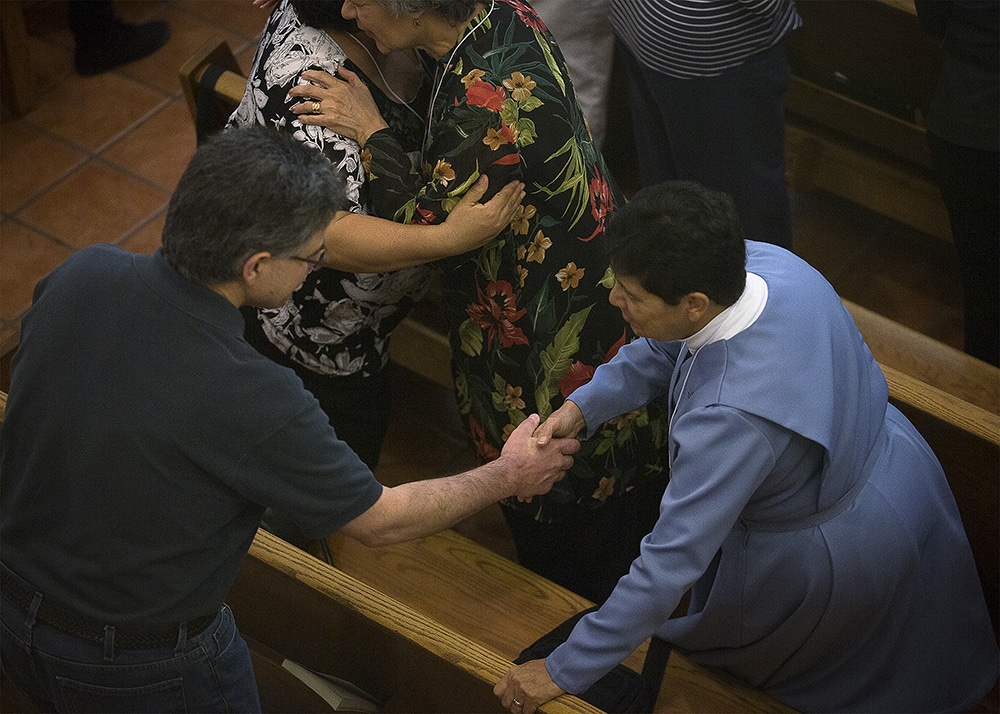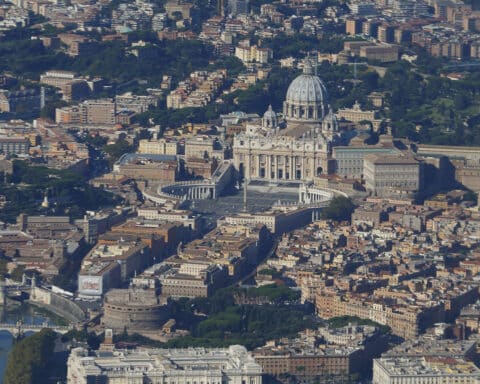Much is unknown about the new coronavirus, COVID-19, that has killed more than 3,000 people in multiple countries around the globe. Dioceses and archdioceses where the disease is widespread, such as Milan in northern Italy, have canceled Masses and other Church-related events. Locations where the disease may be easily transmissible, such as the pools at the Our Lady of Lourdes Shrine in France, have been closed until further notice.
In such a time of uncertainty, it can be tempting to give in to fear and panic. A better response, though, as many officials are recommending, is preparedness — and this includes policy and procedure preparedness, as well as mental preparedness.
In the context of the Church, what might that look like? Most Catholic dioceses and churches around the country and the world — both in the midst of the crisis and those not yet affected — are trying to sort that out. Because sipping from the same chalice can easily spread germs, many dioceses have suspended distribution of the Precious Blood at Mass. This has been a common precaution to take during previous outbreaks of other diseases (think: swine flu, circa 2009). If you prefer to receive holy Communion under “both kinds” (i.e., the body and blood), it’s important to note that “since Christ is sacramentally present under each of the species, communion under the species of bread alone makes it possible to receive all the fruit of Eucharistic grace” (Catechism of the Catholic Church, No 1390).
Others have taken precautions a step further. In the Holy Land, Catholic leaders have instructed that churches only distribute holy Communion by the hand, and to empty all holy water fonts as a precaution against spreading the virus. (It is worth noting that, in the United States, Communion in the hand is allowed by permission of Pope Paul VI, but the decision on which way to receive is left up to the faithful, not to the Eucharistic minister or the bishop. So far, we have just seen recommendations, not mandates, along those lines.)
|
Want more coverage on coronavirus from a perspective of faith? Sign up for our daily newsletter.
|
Many dioceses and parishes also are skipping the Sign of Peace or doing a “noncontact” exchange — a precaution often taken during the normal flu season.
Each of the actions above could be an important precaution for churches to take against spreading the virus further. But what might be some other common-sense precautions for individuals?
First and foremost, if you’re sick, stay home, even if it means missing Mass. While we would never encourage anyone to skip Sunday Mass without cause, illness is a perfectly acceptable reason. With a virus as contagious as the coronavirus seems to be, erring on the side of caution only makes good sense. If you miss Mass intentionally due to illness, you do not have to go to confession.
Second, avoid — or, in the case of a parish, postpone — any nonessential church-related activities. For example, while outreach to the poor and suffering should, if at all possible, continue, you can probably sidestep the Lenten fish fry or communal Stations of the Cross to avoid any unnecessary overexposure, especially if there are large crowds.
Finally, we should keep those who are suffering — from the disease and/or from any related anxiety — in our prayers during this difficult time. In February, Bishop David J. Malloy of Rockford, Illinois, who is chairman of the U.S. Conference of Catholic Bishops’ Committee on International Justice and Peace, Sean Callahan, president of Catholic Relief Services, and Sister Mary Haddad, RSM, president of the Catholic Health Association of the United States, issued a joint statement saying that “the Catholic Church in the United States stands in solidarity with those affected by the coronavirus and their families, health workers who are valiantly trying to diagnose and treat patients, and those under quarantine awaiting results of their screening for the virus.
“We offer our prayers for healing and support those organizations, both domestic and international, working to provide medical supplies and assistance to address this serious risk to public health,” they wrote.
We, too, stand in solidarity with all those affected by the coronavirus, and those who care for them. And we pray that a resolution soon may be found. During times such as these, we are called to trust in God’s will, but we are also called to do our part in order to keep ourselves and our brothers and sisters safe by taking practical steps to prevent the spread of the coronavirus.
Our Sunday Visitor Editorial Board: Gretchen R. Crowe, Scott P. Richert, Scott Warden, York Young





